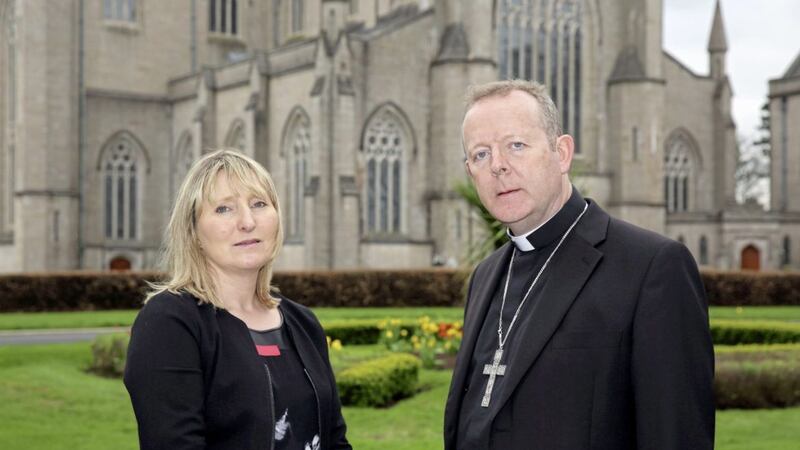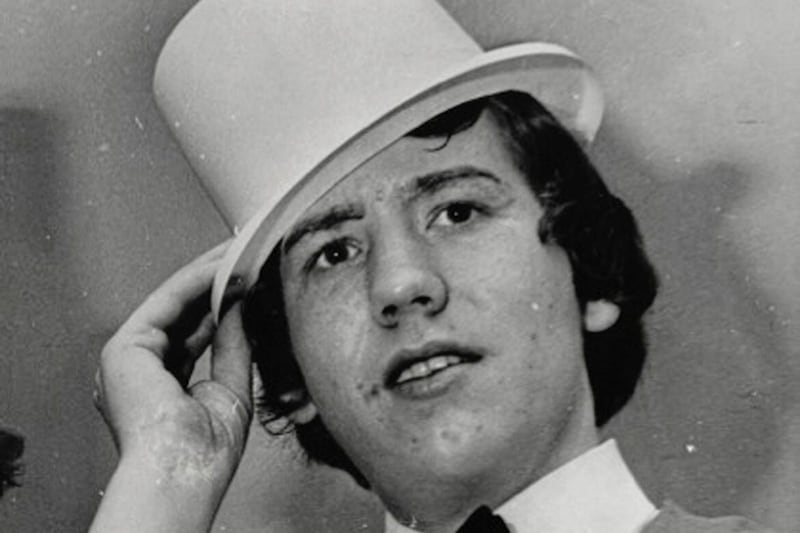CHURCH figures and "trustworthy people" could receive and share information on Troubles-era killings in the absence of a formal truth recovery process, the leader of Ireland's Catholic Church has said.
Primate of All Ireland Eamon Martin told a Mass for the Disappeared at St Patrick's Cathedral in Armagh yesterday that even without a formal process "there are trustworthy people in society and in the churches who would be willing, and could be empowered and enabled, to accept and sensitively share information in this regard".
In a frank homily, which came more than a fortnight after the death of former deputy First Minister and one-time IRA commander Martin McGuinness, Archbishop Martin said information about killings should be passed on.
He praised the tenacity of the Disappeared's families and said their "experience and painful vigil has many lessons for the wider healing and reconciliation of our troubled past".
"You, more than any, appreciate how precious it is when someone comes forward and shares details of what they knew, or did, way back then," he said.
Of the 16 people abducted, murdered and secretly buried by republican paramilitaries during the Troubles, the remains of 12 have been recovered. Four men - Joseph Lynskey, British soldier Robert Nairac, Seamus Ruddy and Columba McVeigh - remain missing.
Archbishop Martin said there are many people who have information about their own involvement in the Troubles.
"Those who were involved and who hold vital clues and information are getting older and some are dying," he said.
He added: "There are people on all sides who carry secrets - memories of their own involvement in the deaths and injury of thousands of men, women and children.
"In some cases they pulled the trigger, planted the bomb, blindly followed orders or gave the command for death or punishment.
"In other cases they willingly drove a car, kept watch, spread fear, collected money or information, sheltered combatants, colluded or covered up, destroyed evidence or intimidated witnesses.
"These were awful, terrible times. Shocking and horrific things happened.
"There must be so many people walking around today who know in their hearts that the information that they have locked down inside them is capable of unlocking the uncertainty and grief of families."
The Independent Commission for the Location of Victims' Remains, established in 1999 by an agreement between the British and Irish governments, has used confidential information to search for the bodies of the Disappeared.
Archbishop Martin said a wider truth-recovery process was needed for the north.
"For our part, we need to find a mechanism of truth and information retrieval which will allow more of these people to come forward so that many more families can be set free from the agony of waiting and wondering, 'why?'," he said.
"Even in the absence of a formal mechanism, I am confident that there are trustworthy people in society and in the churches who would be willing, and could be empowered and enabled, to accept and sensitively share information in this regard."
He reiterated his appeal for information about the four remaining Disappeared whose bodies have not yet been found, asking people "to bring even the slightest clues to the Commissioners' attention so that the agonising wait of the remaining families can be shortened and their loved ones can at last have a Christian burial".








